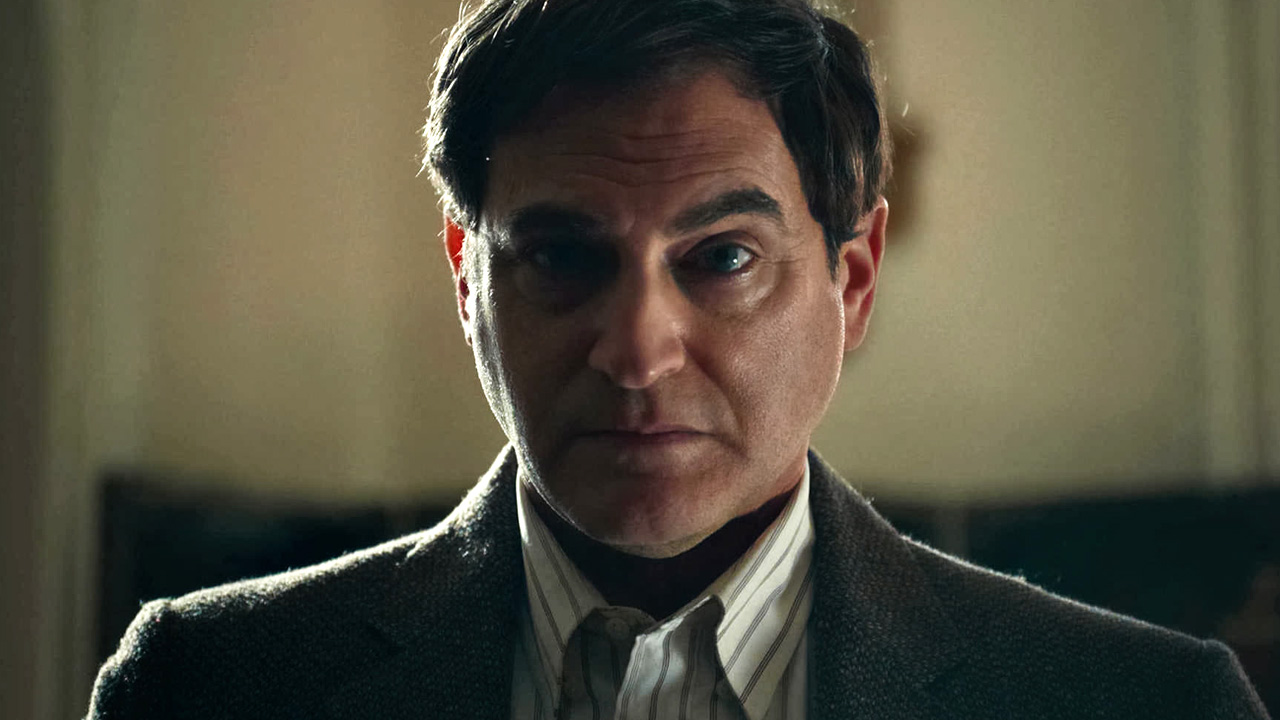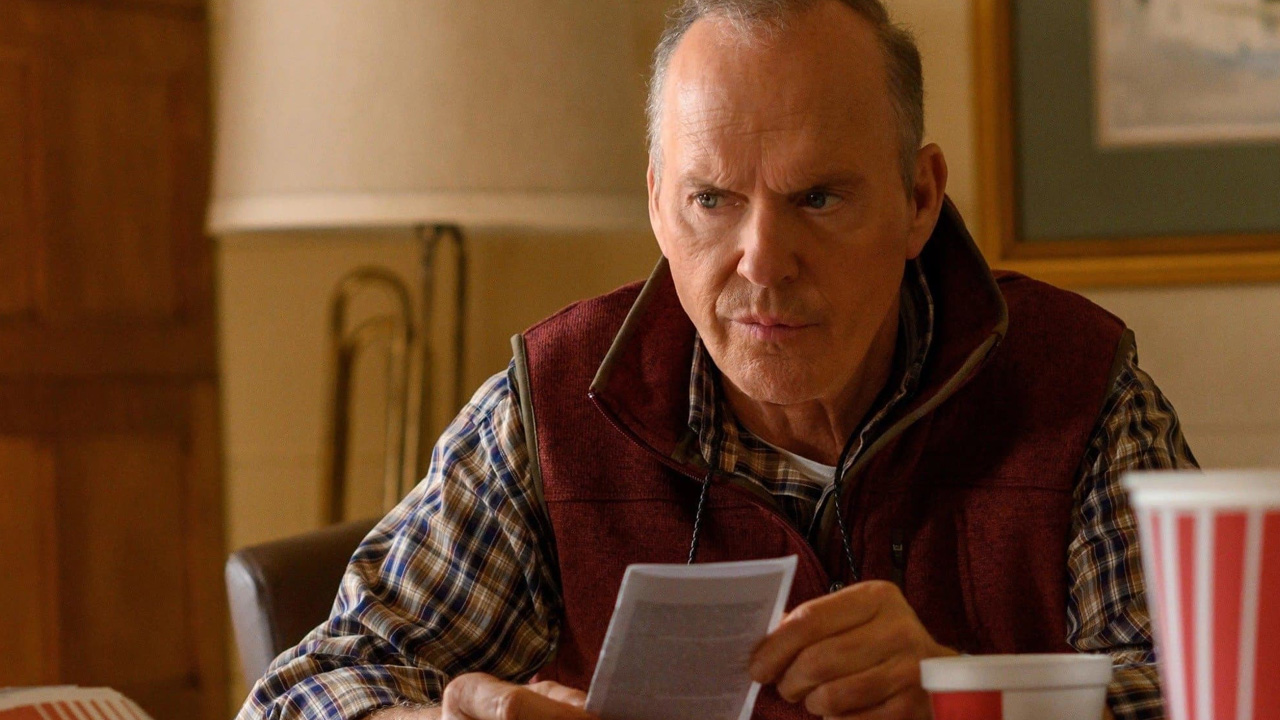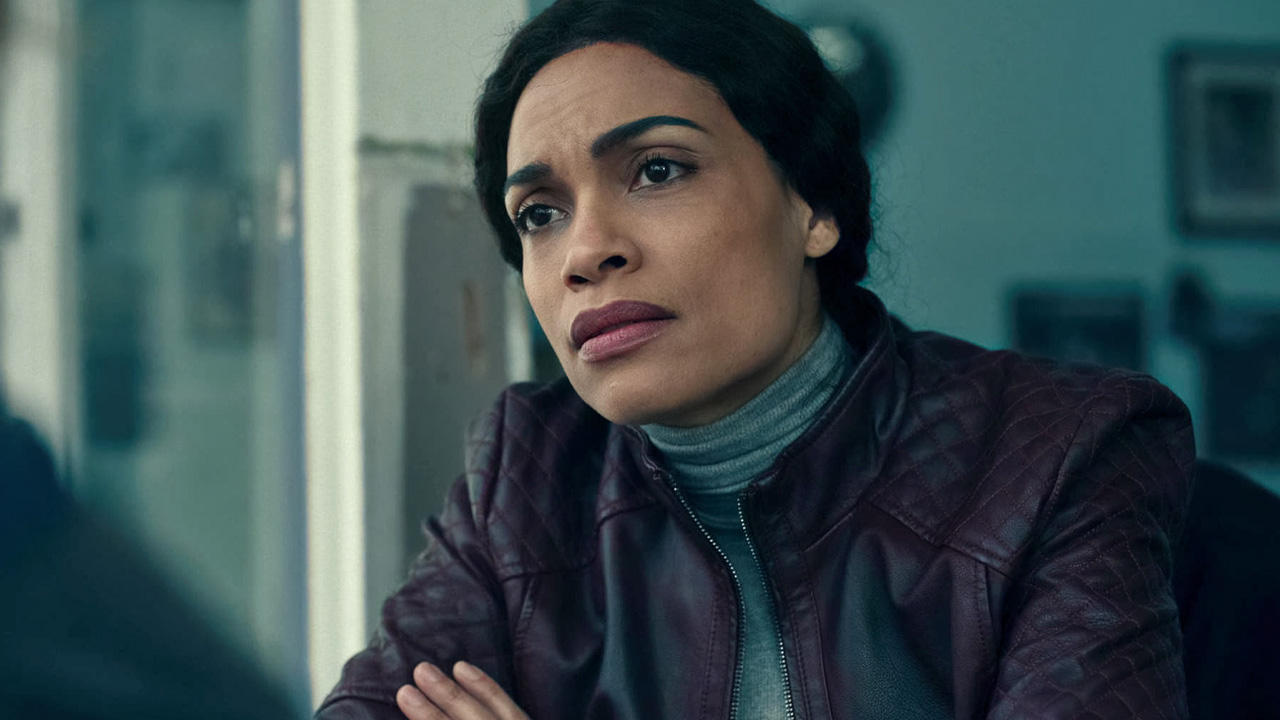Dopesick relays America’s opioid crisis with gripping and harrowing efficiency
It’s not at all surprising that OxyContin is to pain relief what Facebook is to social harmony.

Oscar nominee Michael Keaton leads this Big Pharma drama miniseries inspired by the true story of the one company that triggered the worst drug epidemic in American history. After seeing the first three episodes, Liam Maguren found himself gripped by the harrowing and efficient storytelling.
When the good of public health meets the sin of capitalist greed, you get the opioid crisis. There’s no neat-n-tidy way to explain this criminal act, though it’s easy to understand the size of the devastation: it killed almost 500,000 Americans over the last two decades. Even Alex Gibney—a filmmaker who’s pulled the curtains on Theranos, WikiLeaks, Scientology, the Catholic Church, the US military, and the Trump administration’s COVID response—titled his four-hour doco on the subject The Crime of the Century.
Hollywood’s been having a go at relaying the human toll of the opioid epidemic. Recent efforts include the Russo brothers’ Cherry, starring puppy-eyed sweetheart Tom Holland, and Nicholas Jarecki’s Crisis, starring potential cannibal Armie Hammer. Neither film got the universal critical acclaim they were looking for.
Perhaps a story of this magnitude needed to be a miniseries. Dopesick does just that with gripping and harrowing efficiency.
Throughout its eight episodes, Dopesick unravels the catastrophe caused by the drug OxyContin through three different stories. The first shows the evil genius of it all, Purdue Pharma, weaving through loopholes and using aggressive marketing to make billions selling a dangerously addictive and deadly drug to the unsuspecting public. The second story focuses on a doctor and his patients within a tight-knit community, just a few of the thousands of people who suffered from Purdue’s actions. The final part follows law enforcement recognising the epidemic hiding in plain sight and attempting to expose Purdue as the root cause.
It’s a lot to cover with the narrative bouncing back and forth between various years, which takes an episode to get used to. While several seen-it-before subplots don’t do much to push the plot forward, they do plenty to make these characters relatable and human.
Well, Richard Sackler might be an exception. As the driving force behind the distribution of OxyContin, Sackler’s moral preaching about “healing the world’s pain” contrasts with his emotionless demeanour and unblinking gaze. Michael Stuhlbarg plays him less as a person and more like a boardroom cyborg or a humanoid salamander, which might sound like an over-the-top decision if he didn’t seem so eerily similar to a few notable billionaires currently controlling some of the world’s most powerful and destructive businesses.
It’s not at all surprising, then, that OxyContin is to pain relief what Facebook is to social harmony.

Dopesick methodically shows how Purdue pushed unproven claims of OxyContin being less addictive, used meaningless terms like “breakthrough pain” to sell higher dosages, exploited limitations within the Food and Drug Administration (FDA), and threw dump trucks of cash at expensive retreats to lure doctors into their deception. Those are just a few of the many jaw-dropping tricks they pulled to make their billions. With the pipeline in place, Purdue opened the floodgates, leaving the nation drowning in an epidemic of addiction and death.
Doctor Samuel Finnix, played by Michael Keaton, is both a victim to the scheme and a ground-level witness to OxyContin’s deadliness. He’s the type of no-fuss GP who knows everyone in his small Virginia town, a proud mining community prone to pain and one Finnix cares deeply about. The flashy retreat didn’t push Finnix on the OxyContin bandwagon; his heartstrings were puppeteered onto it by a young buck salesman (played by Will Poulter, sporting disastrous ‘N Sync-styled hair).
Finnix’s a tragic character, a simple man just trying to do the right thing, and Keaton keeps his performance composed and dignified. Just like his role in Best Picture winner Spotlight, he isn’t out to claim an award; he’s doing what the show demands of him. That’s what makes him one of the greats.

Booksmart star Kaitlyn Dever plays one of Finnix’s patients Betsy, a young woman with a knack for mining and the back pain to prove it. Betsy has enough to deal with between her girlfriend’s request to move somewhere gay-friendly and her religious parents’ desire to keep her at home with the closet door shut. Then OxyContin moves in, choke-holding her life in a way that goes outside a simple case of “being a drug addict.”
This reflects Dopesick‘s desire to move away from the stigma of drug addiction while occasionally addressing it. A vital moment comes from Rosario Dawson’s character, DEA agent Bridget Meyer, who recounts her memories of the crack cocaine epidemic—a crisis similar in damage but fuelled by racist indifference towards those who suffered. When OxyContin plagued white America with the horrors of addiction, suddenly it was treated as a health crisis.
Of course, a mere reference to the crack cocaine epidemic isn’t going to reverse years of film and television inhumanly stereotyping Black victims of that era. But it’s an important note, nonetheless.

Meyer, as we find early on, was hot on Purdue’s trail while dating the man of her dreams, but was unable to hold the case or her marriage. That sucks, though seeing Dawson play a whiskey-swigging divorced woman of the law is all kinds of awesome.
Peter Sarsgaard and John Hoogenakker play agents Rick and Randy who pick up the investigation Meyer started. I’d say more about them but they’re honestly super straightforward characters. That may seem like a diss, but in a way, they represent the surgical narrative at play here—explicit, no-nonsense, and keen to get the job done. (You’re also so invested in them nailing Purdue, you’re not going to care about their home lives.)
For something as dense as Dopesick, which works from journalist Beth Macy’s non-fiction book, it’s vital to have storytelling this concise. Like Todd Haynes’ chemical pollution thriller Dark Waters or Steven Soderbergh’s prophetic pandemic flick Contagion, Dopesick‘s matter-of-fact approach is all it needs to captivate. In a situation like this, nothing’s more shocking than the facts.






















